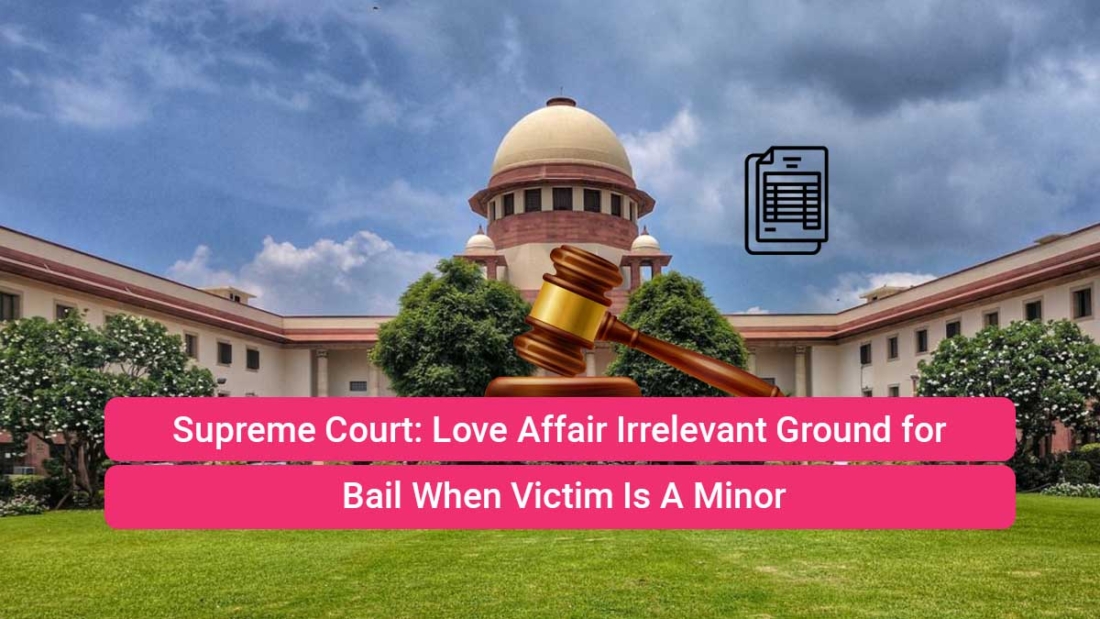In the case of X (Minor) v. The State of Jharkhand & Anr; the Hon’ble Supreme Court held that on the day of the incident the victim was barely thirteen years of age and the ground that “there was a love affair” between the minor victim and the accused will have no bearing on the grant of bail.
Facts of the Case
An FIR was registered for offences punishable under section 376 of the IPC and section 6 of the Protection of Children from Sexual Offences Act, 2012 (“POCSO Act”). The minor victim as per the records was barely thirteen years of age on the date when the alleged offence took place. It was alleged that the accused had taken her to a residential hotel and had entered into sexual relations with her on the assurance of marrying her. The victim further recites that the accused was refusing to marry her and had sent obscene videos to her father.
The High Court granted bail to the accused and the Single Judge in his order stated that ““It appears from the statement under Section 164 Cr.P.C. as well as the averments made in the FIR that there was a love affair between the petitioner (accused) and the informant (victim) and the case appears to have been instituted only on the point of refusal of the petitioner to solemnize marriage with the informant.”.”
The appeal in the Supreme Court arises from the impugned order of the High Court.
The Counsel for the Accused contended that there has been no recovery of the allegedly obscene videos nor is there any medical evidence to indicate that the girl had any sexual contact with the accused.
Observations by the Court
The Hon’ble Supreme Court observed that:
- Taking into account the age of the victim and the nature and gravity of the crime, no case for the grant of bail is established.
- The High Court was manifestly in error in allowing the application for bail. The reason that from the statement under Section 164 and the averments in the FIR, it appears that “there was a love affair” between the appellant (victim) and the second respondent(accused) and that the case was instituted on the refusal of the second respondent to marry the appellant, is specious.
The court rejected the bail and directed that the accused should surrender forthwith to custody.
– Vaishali Jain, Advocate & Associate – Child Safety at Work & Priyanjali
 Cart is empty
Cart is empty 

